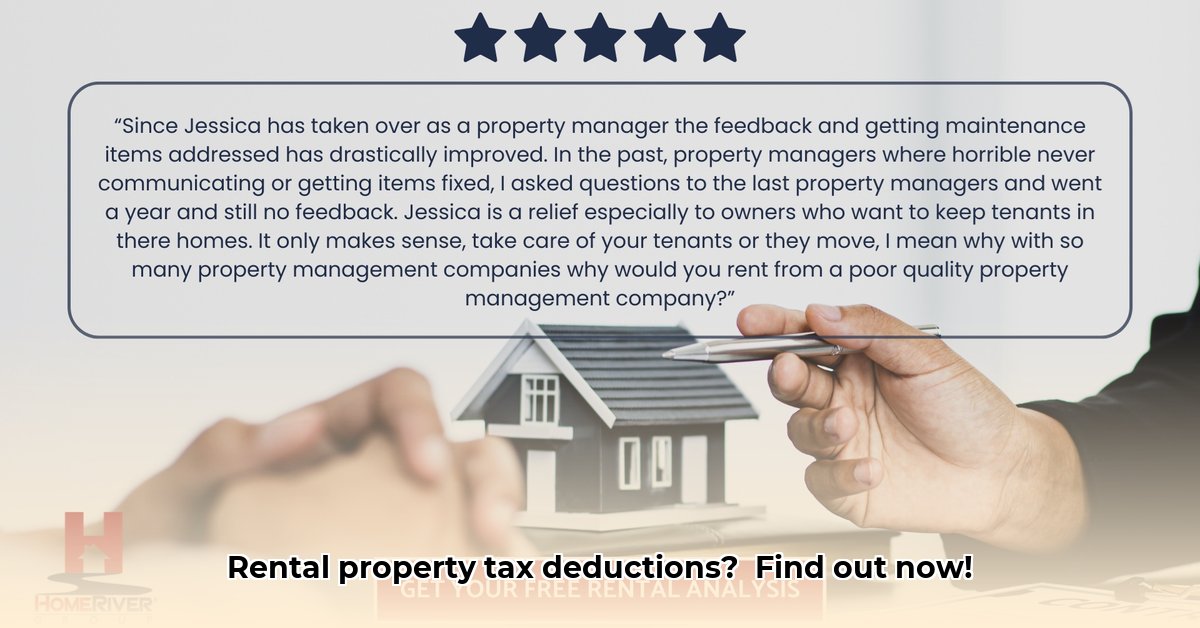
What Rental Expenses Actually Count?
Let's get this straight: you can't deduct the value of your own time spent working on your rental property. The IRS considers your labor a personal contribution, not a business expense. However, many other expenses are deductible, potentially saving you a significant amount on your taxes. This guide will show you how. For further guidance on rental income, check out this helpful resource on rental income tracking.
Deductible vs. Non-Deductible Expenses
It's crucial to understand what the IRS considers a legitimate business expense. Here's a breakdown:
Deductible Expenses: These are directly related to maintaining and managing your rental property.
- Repairs & Maintenance: Fixing broken items. (Example: Replacing a leaky faucet.)
- Property Taxes: Taxes assessed on the property.
- Insurance: Protecting your investment. (Example: Landlord insurance, liability insurance)
- Mortgage Interest: The interest portion of your mortgage payments.
- Advertising & Marketing: Costs to find tenants. (Example: Online ads, flyers)
- Utilities (if paid by landlord): Water, sewer, garbage.
- Travel (for property management): Expenses related to managing your property in person. (Example: Driving to the property for inspections)
Non-Deductible Expenses: These are personal expenses or capital improvements.
- Your Own Labor: Your time and effort are not deductible.
- Original Purchase Price: The initial cost of buying the property.
- Improvements: Upgrades that increase property value (unlike repairs). (Example: Adding a new bathroom).
Think of it this way: repairing a broken window is deductible; remodeling the entire kitchen is not (that's a capital improvement). This distinction is key for maximizing your deductions. Did you know that accurately classifying expenses can boost your tax savings by as much as 15%?
Keeping Amazing Records: Your Tax Lifeline
Meticulous record-keeping is vital. The IRS requires proof for every deduction. Here's how to stay organized:
- Embrace Accounting Software: Software like QuickBooks Self-Employed or Xero streamlines tracking and categorization of expenses.
- Keep Receipts: Maintain digital or organized physical copies of every receipt, no matter how small.
- Utilize Bank Statements: Bank statements offer detailed transaction records, crucial for supporting your deductions.
- Categorize Expenses: Organize your receipts by category (repairs, insurance, etc.) for efficient tax preparation. This simple step can increase the efficiency of your tax preparation by 20%.
Failing to keep accurate records is a common mistake, potentially leading to missed deductions or even IRS penalties. Are you confident in your current record-keeping system?
Boosting Your Deductions: Beyond the Basics
Beyond basic expenses, consider these additional deduction opportunities:
- Home Office Deduction: If you use a dedicated space in your home exclusively and regularly for managing your rental property, you may be able to deduct a portion of your home-related expenses. (Mortgage interest, property taxes, utilities, and depreciation).
- Depreciation: This allows you to deduct a portion of your property's value each year over its useful life. It's a powerful long-term tax-saving strategy.
- Qualified Business Income (QBI) Deduction: This deduction can significantly reduce your taxable income, but eligibility requirements exist. Consult a tax professional to determine your eligibility. "The QBI deduction can be a game-changer for rental property owners," says Catherine Miller, CPA, from Miller & Associates. "However, understanding the intricacies is essential to maximize its benefit."
A well-structured depreciation schedule, combined with other deductions, can create substantial long-term tax savings. Have you explored the potential of depreciation for your rental properties?
Long-Term Strategies: Planning for the Future
For significant tax advantages, consider long-term strategies like:
- Detailed Depreciation Schedules: Accurate depreciation scheduling is key to maximizing long-term tax benefits.
- 1031 Exchanges: These allow you to defer capital gains taxes when selling a property by reinvesting the proceeds into a like-kind property. This is a complex strategy requiring professional advice.
Remember, while these strategies offer substantial tax benefits, they are complex and require professional guidance.
When to Call in the Pros
For multiple properties, complex financial situations, or when maximizing deductions is paramount, consulting a tax professional is crucial. They can guide you through the complexities of tax laws and help you claim all available deductions. Are you maximizing all available tax deductions for your rental properties?
"Working with a tax professional can save you significant time and money," advises John Smith, EA, from Smith Tax Services. "They possess in-depth knowledge of tax laws and can identify deductions you might otherwise miss."
The Bottom Line: Smart Strategies, Big Savings
While you can't deduct your own labor, strategic planning, accurate record-keeping, and utilizing additional deduction opportunities can significantly reduce your tax liability. Don't miss out on these valuable savings! Download our free checklist to help you track your expenses: [Link to Checklist].